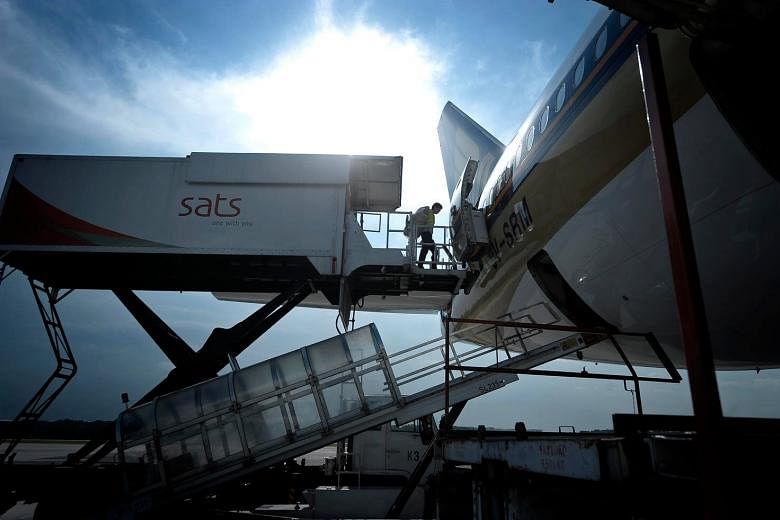Changi Airport's biggest ground handler, Sats, is investing about $40 million to build new air cargo facilities in Dammam, Saudi Arabia, becoming the first foreign firm to enter the market in that country.
The move is part of bigger plans to expand Sats' reach in the Asia-Pacific and Middle East, chief executive officer and president Alex Hungate told The Straits Times.
A wider network will allow Sats to offer airlines more and faster connections, which is key in an increasingly competitive market, he said.
The investment in the port city of Dammam, in the eastern part of Saudi Arabia, is Sats' biggest greenfield project, or one built from scratch, in its air cargo business.
Overseas expansion is typically carried out through joint ventures and partnerships with existing players, but Sats is going solo.
In Saudi Arabia, Sats will build a new 20,000 sq m cargo terminal near the airport and within Dammam's new cargo village.
It will include a dedicated cold chain facility to meet the growing needs of the pharmaceutical and food industries to ship high-value, temperature-sensitive goods.
When it opens in about two years, the facility will be able to handle up to 150,000 tonnes of cargo annually. Last year, Dammam's King Fahd International Airport handled 95,321 tonnes.
The airport's director-general, Mr Turki Al-Jawini, said: "The introduction of a second cargo terminal operator will result in enhanced services, options and increased air cargo capacity for the marketplace."
The incumbent cargo terminal operator is a unit of the national carrier, Saudi Arabian Airlines.
With the expansion into Saudi Arabia, Sats will operate in more than 50 cities in 14 countries, including Singapore.
Mr Hungate said: "The air cargo business in Asia is growing very fast, driven primarily by e-commerce. Young people grow up buying stuff automatically online.
"Singapore is one of the most important hubs and Hong Kong is big, but some of the fastest growing in the world are Middle Eastern hubs."
Sats' other air cargo investment in the Middle East is a 33 per cent stake in a ground-handling firm in Muscat, Oman.
While carriers, including Singapore Airlines, have been lamenting about poor yields in the air cargo business, mainly due to overcapacity in the market, the volumes are growing, Mr Hungate said.
Sats aims to harness technology to drive automation and productivity.
In 2014, the firm's cool chain facility at Changi Airport was certified by the International Air Transport Association as the world's first centre of excellence in pharmaceutical handling. For Sats, the future will remain focused on Asia and the Middle East, Mr Hungate said.
He added: "I'm not saying that places like Africa and Latin America are not exciting. They are. But we think the Asia-Pacific and the Middle East have plenty of opportunities. It is where we have our core expertise and network, and the aviation business is a network business."


